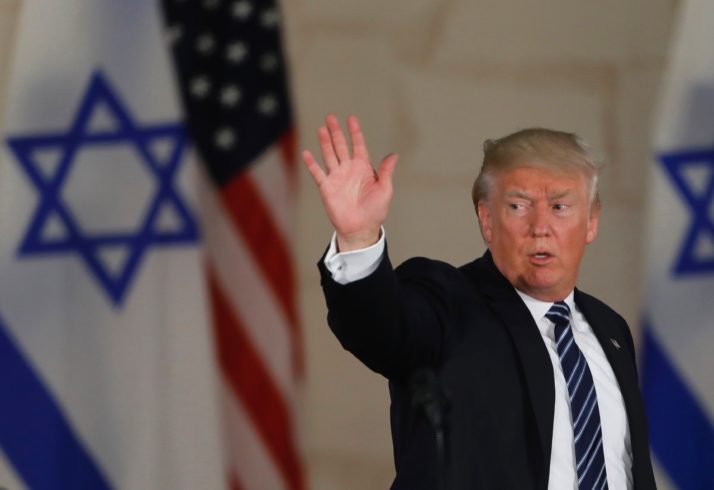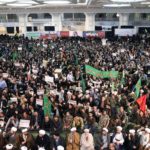
What happened?
The United States was left isolated on December 21st after a majority of UN member nations voted for a resolution opposing President Trump’s decision to move the United States embassy in Israel to Jerusalem. The move, which also recognised Jerusalem as Israel’s capital, was met with widespread condemnation and breaks with 70 years of diplomatic precedent in which the US has remained neutral on the city’s status.
The move breaks with 70 years of diplomatic precedent
The historically unstable region has become more so as Palestinian activists declared a ‘day of rage’ in response to the announcement. Protests broke out in the West Bank and in neighbouring Arab countries, with rocket fire between the Gaza Strip and Israel stoking further tensions.
Why is it significant?
The 1948 war resulted in the division of Jerusalem, with the East going to the Palestinians and the West to Israel – both claim the city as their capital. The occupation of East Jerusalem by Israel since 1967 has meant that the country controls the area already, but Trump’s decision has effectively endorsed this, going against the global status quo.
The US President portrayed this as a “long overdue” step to take the issue of Jerusalem off the table as a contentious factor in peace negotiations, hoping to speed them up. Experts, however, have warned that this will create more obstacles to, if not halt, the peace process entirely.
In the past, the US has used their neutrality on the issue of Jerusalem to incentivise Palestinian participation in peace talks, but this leverage is now gone. The trust of Palestinians will likely be extremely difficult to regain, as they have already made a number of major concessions in the path towards a peace deal.
Fall-out from the resolution
Trump seemed to take the resolution as a personal affront, with Nikki Haley threatening to pull aid funding from the body beforehand, as well as holding an ‘exclusive reception’ to thank the 64 countries that voted against it, abstained, or were absent.
Leaders didn’t respond well to the threats, with Turkish president Recep Tayyip Erdoğan accusing the US of trying to buy off countries’ votes. He implored others to not “sell off democratic free will”.
Palestinians have called Trump’s decision the “biggest mistake of his life” with their representative to the UN warning that the move “serves the Israeli government in implementing its colonial plans… the powers of extremism”.
Palestinians have called Trump’s decision the “biggest mistake of his life”
Few expect Trump to follow through on his threat to pull funding from those who voted for the resolution, but there will no doubt be major repercussions down the line. Indeed, there already have been; the Israeli government, pushed by right-wing politicians have taken a number of legislative steps to solidify their claim over Jerusalem.
One such measure has made it more difficult for a peace deal to be reached where land currently occupied by Israel is given to Palestinians. Another, which was abandoned, proposed giving them the power to re-draw municipalities in East Jerusalem. Benjamin Netanyahu’s party has also added to their platform the intention to impose Israeli law in East Jerusalem and settlements in the West Bank.
What does the future hold?
As the Israelis are emboldened in their claim to Jerusalem, it makes the prospect of a peace deal much slimmer. While future administrations could move the US embassy back to Tel Aviv, and rescind Trump’s recognition of Jerusalem as the capital, this would undoubtedly strain the US/Israel relationship. Israel are unlikely to cede any land they gain back to Palestinians – that much we can infer from the legislation they have been working on.
UN Secretary General António Guterres expressed the UN’s uncompromised support for the peace process
UN Secretary General António Guterres expressed the UN’s uncompromised support for the peace process, saying “There is no alternative to the two-state solution, no plan B.” It is likely that the status quo on Jerusalem will endure and that it will remain a ‘final status’ issue for most leaders (that is, an extremely sensitive issue that will be left to the end of any peace deal).The resolution to reject Trump’s decision was a symbolic gesture, so it is unlikely to effect any real change with regards to the status of Jerusalem. It does, however serve as a reassurance to Palestinians that the majority of UN member nations have not taken, and do not intend to take a side in the conflict. While this reassurance is lacking in that perhaps the most powerful country in the UN is opposed to it, the US has lost some of its clout on the world stage due to their crude and at times isolationist foreign policy. As a result, this administration’s backing might not mean as much as that of previous presidents.



Average Rating